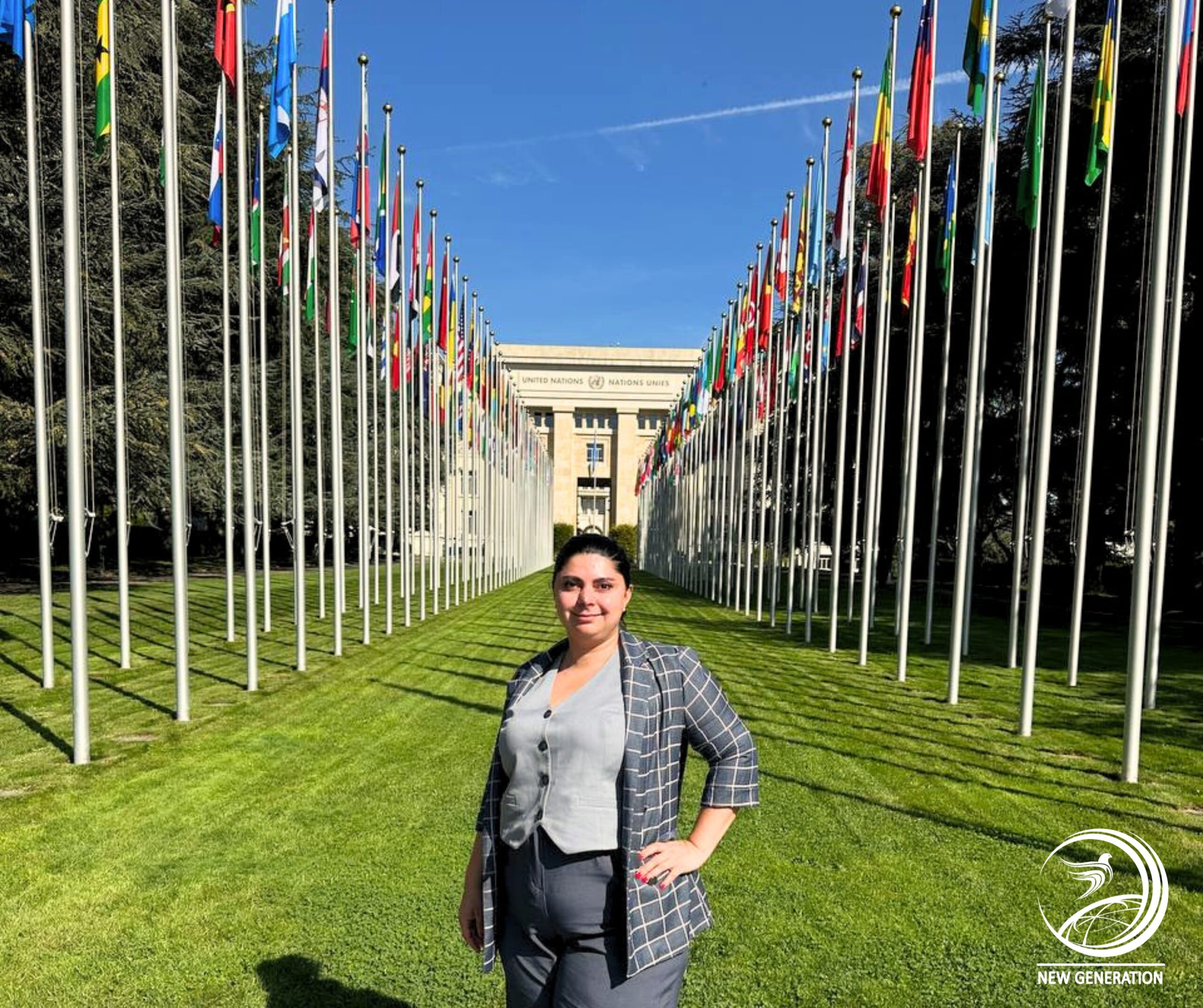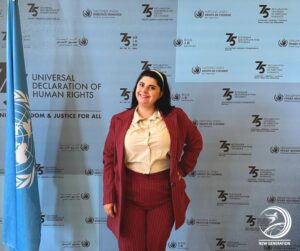
NGNGO PARTICIPATES IN THE UN CESCR 74TH SESSION.
HOW DOES ARMENIA PLAN TO REMOVE BARRIERS TO ACCESS OF LGBT COMMUNITY TO ECONOMIC, SOCIAL AND CULTURAL RIGHTS? NGNGO PARTICIPATES IN THE UN CESCR 74TH SESSION.

The 74th session of the UN Committee on Economic, Social and Cultural Rights (CESCR) is held from 25 September to 13 October 2023 at Palais Wilson, in Geneva.
During the session, the Committee considers the reports of the following State parties: Armenia, Brazil, Chad, France, Qatar, State of Palestine, follow-up concluding observations of Bosnia and Herzegovina, Finland, Latvia.
From October 3 to 6, Alina Mirzoyan, human rights and advocacy coordinator of New Generation Humanitarian NGO took part in the informal briefings on the parallel report jointly submitted by the Eurasian Coalition on Health Rights, Gender and Sexual Diversity (ECOM), New Generation Humanitarian NGO, and National Trans Coalition Human Rights NGO to the United Nations Committee on Economic, Social and Cultural Rights ahead of the consideration of Armenia’s Fourth Periodic Report.
The parallel report as well as informal discussions of the Consortium representatives with the Committee touched upon the Human Rights Violations Based on Sexual Orientation and Gender Identity in Armenia, primarily focused on non-discrimination, health, prevention of domestic violence, respectfully urging the Committee to address the following inquiries to the State Party of Armenia:
➢ What are the concrete plans and timelines for Armenia to develop and enact a procedure for changing gender markers in official documents, ensuring that trans people can access accurate legal recognition of their gender identity?
➢ Given the absence of recognition of SOGI as grounds for hate crimes, how does Armenia intend to address and combat violence targeting the LGBT community?
➢ Why is Armenia not including SOGI as a protected category in its proposed anti-discrimination law? What steps will be taken to change this and provide comprehensive protection against discrimination based on sexual orientation and gender identity?
➢ When can we expect Armenia to abolish labeling gay men as having a mental disorder during conscription? How will Armenia work to eliminate this discriminatory practice and ensure the fair treatment of gay and trans men within the military?
➢ What strategies and commitments is Armenia planning to adopt to provide adequate support and assistance to people living with HIV? How will Armenia ensure that its healthcare policies align with these commitments?
➢ How does Armenia plan to transform the current narrative of hate and discrimination against the LGBT community? What concrete actions will be taken to shift public attitudes, promote tolerance, and counteract negative stereotypes?



